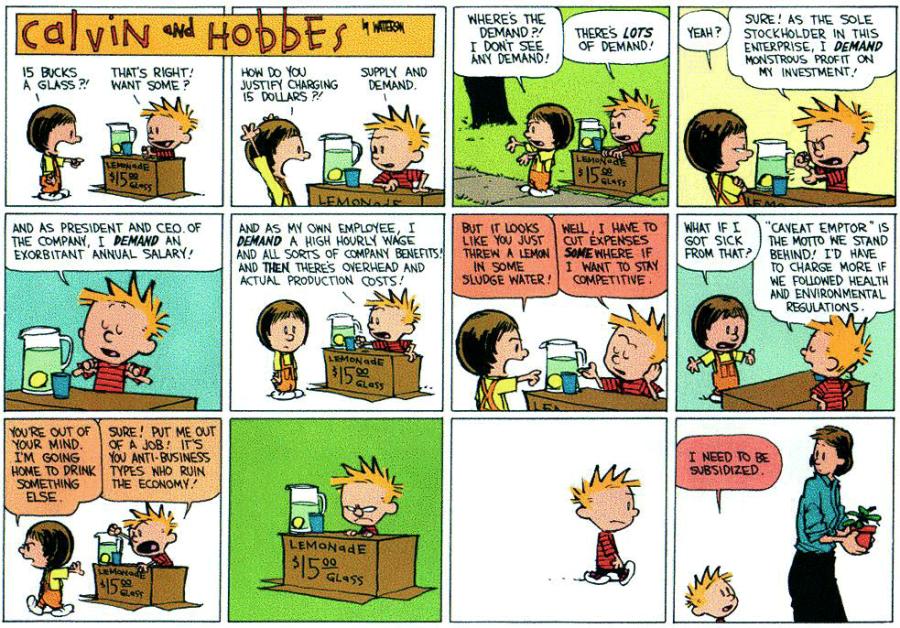Recently I've been thinking how amazing it is that we—by which I mean living beings (see
dynamic entities)—came to be. By that I mean that before there were dynamic entities, physics and chemistry ruled. Strange as quantum mechanics is, the universe was mechanical—in a very broad sense. The underlying rules of physics were the best way to understand the universe.
But at some point, nature built an entity (a cell?) that was able to sustain itself by extracting energy from the environment. Such an entity differed from other, static entities. It persisted as an entity not because of its material composition but because it could be seen as a persistent pattern of activity. Living beings are not persistent material constructs. It's standard science that the materials in our bodies replace themselves regularly. What persists is a pattern of activities or processes.
The processes that persist are not equilibrium processes, like planets orbiting the sun. Nor are they quantum processes, like particle emerging from the void or particles decomposing into other particles though random quantum processes. The processes I'm thinking of are for the most part macro processes that require energy. But what's amazing is that these processes, i.e., living beings, have developed in such a way that they are able to extract the energy necessary to power themselves from the environment.
The two most familiar kinds of energy extracting and persisting processes are biological organisms and social organizations. Both are processes that persist only if they extract enough energy to power their processes.
Sounds like a losing proposition. Perhaps hurricanes (which fit this description) will come into existence through some random combination of circumstances. But it seems unlikely that processes such as these would ever become widespread. After all, it's almost like perpetual motion. A processes is developed that will run down unless it finds energy in the environment to keep itself going. How likely is that? Yet as we know it is very likely. Look around. There are an enormous number of different ways nature has found to build processes that succeed in keeping themselves going. Not only that of course, these processes reproduce and make copies of themselves—which through evolutionary processes produce variations, etc. Furthermore, these processes join together into groups to create larger processes (such as colonies, corporations, and countries), which themselves persist only if supplied with external power. In all cases of these larger processes, the external energy is supplied to them throgh the efforts of the smaller processes of which they are composed, i.e., colony members, corporate employees, county citizens. These larger processes don't extract energy on their own. They do it only as a result of the combined efforts of their component smaller processes, i.e., us.
OK. So that's amazing. Yet there is a second amazing observation. Almost all energy extractig processes go out and get the energy they need. The best and clearest example is that of an animal that hunts, kills, and eats its prey. It requyires energy; it goes out and gets it.
Plants are a bit different. They don't for the most part go out and hunt. They make use of energy, typically sunlight, that streams down upon them. That may be a bit easier in that the energy is given to them freely and straightforwardly. They don't have to hunt it down and capture it. All they have to do is find a way to exploit it once it is bestowed upon them.
But think our our human economic society. For the most part people don't do either. We don't go out and hunt down energy; we don't make use of energy that is freely bestowed upon us. We sell services. That seems especially strange. Biological often speak of animals as "making a living," especially insects, which "get paid" in energy for services that they perform.
But I don't think that's the same. Insects hunt down energy. It happens that the processes they perform are also useful to other processes. So they is synergy. But it doesn't seem to me to be the same as selling a service. They don't get paid by a customer.
Perhaps it's not quite that simple. Apparently E. coli farm. They gather other bacteria, which they cultivate and use for (whatever it is they use them for). So just as we farm—and thereby support the plants that we grow—E. coli also support the bacteria that they cultivate. So the cultivated processes do sell services to other entities that pay them for those services by supplying them with the energy they need to survive.
Our economic system has generalized that model. Most of us sell services for money—a form of proxy energy. It is quite amazing how peaceful this process is—for the most part. Most people don't have to hunt down and (forcefully) take the energy they need. Most people have services which they can sell for enough returns to sustain themselves. Ultimately, of course human society must extract enough energy from the environment to sustain its population. But we are so good at that that it takes very few people (farmers, miners, oil workers, etc.) to extract all the energy we need. The rest of us take in each others' laundry—and it all seems to hold together. There is enough energy produced and it is distributed sufficiently well throughout the culture that the widely diverse set of services that we sell can be used to sustain ourselves—and used in a relatively peaceful way. Amazing.
 .
. 





